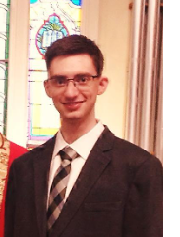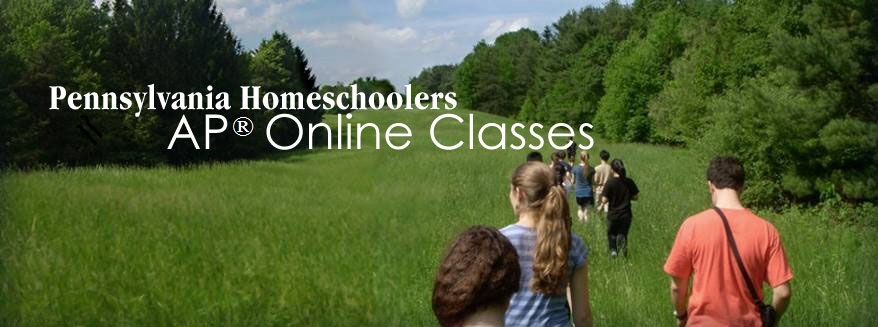
Online for the 2025-2026 School Year
Teacher: Daniel Burns
Email: swampfox185@gmail.com
Registration form: click here
Registration is now open for 2025-2026!
Course Materials:
In order to keep costs down for families, all of our course resources are available for free.
- The American YWAP This is an innovative, open textbook sponsored by Stanford University available online, in printable PDF format, and even by audio recording.
- The History of the United States: A Christian Perspective by Dr. Robert Spinney (PDF).
- The Ultimate Review Packet. I will buy a classroom license, which makes it cheaper on a per-student basis included in the cost of tuition.
- Many other free online materials are incorporated, such as videos, review websites, primary source documents, and so forth.
Schedule:
Class starts on August 25th with submission of the summer reading book review and finishes after the AP exam (likely May 8th, 2026). There is one week off for Thanksgiving, two for Christmas, and one for spring break.
Class Fees:
Early bird (before July 1st): $695, regular $725. Audit option (see below) $250.
AP exam results:
My students have done extremely well the AP U.S. History exam in the last 19 years, performing well above national averages. In 2024, 80% of my class earned a 4 or a 5 on the AP exam, compared to a national average of 3.23. One student a couple years ago correctly answered every single question on the test (and got a special commendation letter from the College Board for this rare achievement!).
Course description:
AP® U.S. History follows the College Board’s curriculum framework, covering U.S. history from colonization through the present, including political, social, cultural, and economic themes. Since 2015, the curriculum framework has included a strong focus on historical thinking skills. The idea is to train students to engage in the work of a historian at an introductory level. What do professional historians do? They examine evidence from all available sources to come to conclusions about the past. Those sources of evidence include documents, photographs, journal entries, archeological digs, personal interviews, the work of other historians, and much more. All of this evidence is filtered through an evaluation process to determine the meaning and credibility of the evidence. What were the biases of the source? Who was the intended audience and how might the intended audience affect its credibility? Was the evidence tampered with over time? How have other historians interpreted it?
In APUSH, you probably won't have the opportunity to conduct your own archeological dig (but if you do I'll give you bonus points!), but you will be presented with plenty of evidence to sort through. The textbook, supplementary sources, and primary sources will give you the raw material to work with as you argue for thesis statements and evaluate sources. The basic idea is that APUSH students are doing history instead of just studying history. This approach is much more interesting than a traditional memorization-based approach. The emphasis on doing history puts a big focus on critical thinking skills such as analysis, argumentation, and causation. So be prepared to be stretched and challenged along the way!
As you may have guessed from the listing of Dr. Spinney’s book above, I try to approach history with an appreciation for America’s Christian heritage. Dr. Spinney is a professor of history at Patrick Henry College and his book is a compilation of his course lectures. I also use a set of PowerPoints created by a conservative Christian history professor designed to expose students to a similar worldview (and to Calvin and Hobbes cartoons as historical commentary!). Students will see many aspects of America’s development analyzed through this lens.
Note that while students are exposed to a Christian worldview, the course is not about indoctrination from a single perspective. By critically evaluating a range of perspectives, we strive to arrive at truth. Students will better understand and be able to defend their beliefs when they have considered and debated opposing views. Those who are not Christians themselves will find their beliefs respected and have the opportunity to present their point of view. My approach is to neither downplay the greatness and uniqueness of America's heritage nor whitewash its faults. I want to celebrate the incredible freedom and prosperity the U.S. has enjoyed and how it has often been a force for good around the world, while acknowledging and understanding its many shortcomings. We've enjoyed an outstanding exchange of ideas among students from a variety of political beliefs and religions backgrounds in years past.
The nuts and bolts of the course involve a variety of assignment types. These include reading primary and secondary sources, watching videos, and research online as well as practice with AP-style multiple choice questions, short answer questions, essays, and document-based questions. Some assignments encourage and reward creative presentation. Some unique aspects of the course include:
- Points-based grading standards: Instead of the traditional weighted categories and percentages, I use a points-based system for determining grades. Students will earn points for many different types of activities and assignments with a goal of achieving a certain number of points for an A in the course. Grades are thus more motivational than punitive. If an essay or exam goes poorly, it's a learning experience and there are plenty of opportunities to make up for it by earning points elsewhere. Motivated students are more likely to take initiative, which leads to success in the course and on the exam.
- Interactive assignment types: Points-based grading opens up many possibilities for interactive assignments, like study-buddy questions and group projects. And the new textbook comes with a variety of activities and discussion prompts. I have always encouraged interaction, but I think this year will be better than ever!
What's new for 2025-2026:
- Streamlined content: In order to reduce the workload without compromising quality or exam preparation, I have changed up our course resources. The Spinney book will be our primary textbook supplemented by American YAWP and Great Courses videos. The idea is to maintain a rigorous course but without overly dominating students' schedules.
- Ultimate Review Packet: This resource focuses learning on the AP course framework, helps students build historical thinking skills, and provides a great resource for reviewing all the necessary content at the end of the year.
Who should apply:
This course is open to homeschooled students who will be in grades 9 through 12 in the 2025-2026 school year. However, in my experience, 9th graders are typically better served by choosing another course as their first AP® course and waiting another year before attempting APUSH. There are no prerequisites, but a basic understanding of U.S. History will be helpful. Students should also be willing to regularly engage in thoughtful discussions of historical issues and events.
This course is ideal for those who have a passion for history and enjoy an academic challenge. There will be large readings required along with primary source documents, regular AP®-style practice essays, and other assignments, so strong reading and writing skills are essential. I will ask for PSAT/SAT/ACT scores or other measures of academic preparation in the application process. Perhaps most importantly, students should have self-motivation and a love of learning. Plan to spend around 9-12 hours per week engaged in this course.
Interaction:
An important component of the class is the exchange of perspectives and ideas. This is not a class for simply memorizing facts and dates, but for analyzing, synthesizing, and interpreting. What do you think about the transcendentalist literary authors? Did the South have the right to secede? What about Theodore Roosevelt’s Big Stick foreign policy?
We like to have fun in APUSH! The course will have a highly interactive password-protected website (interactive rating of 3) where students get to know each other, respond to each other’s work, ask questions, etc. One popular assignment type is a group project where students collaborate on researching and answering a question.
I will post frequent updates on the website as a reminder of assignments. Parents are encouraged to check the website regularly for details about course work and student interaction. I will also send out a midyear progress report and a final progress report to parents (very useful to show evaluators or to include in a portfolio!).
Note that there is *not* a specific time when the class meets in a live setting. Students are expected to check the website daily and participate regularly, but not at any particular time of day. Other than certain optional activities, everything is available around the clock to accommodate different schedules and even students living around the world. We will, however, organize an (optional) weekly live study session for review and interaction, typically led by my TAs who were outstanding students in previous years. Typically I will be available for online "office hours" most weekday mornings for getting questions answered quickly or reviewing material.
Audit option:
Audit students have access to all class materials, including automated multiple-choice quizzes. However, they do not participate in assigned discussion topics or group projects and do not receive grades or feedback on any written work. Although the regular course is certainly preferable for AP® exam preparation and a fun experience, audit could be a good option for those who can handle a more self-directed course. Just indicate on the application form that the application is for audit status.
Registration:
Click here. Please email me with any questions. Class size is limited and there will be a summer reading assignment, so sign up early!
Instructor Qualifications:
This will be my 21st (wow!) year teaching AP U.S. History online for the Pennsylvania Homeschoolers. I love U.S. history and the related fields of politics, economics, and culture. I have also been a classroom teacher, AP® Coordinator, and Administrator for Puebla Christian School in Puebla, Mexico. I am a veteran of the AP® Homeschoolers program, having taken various AP online courses while in high school as a PHAA student. I went on to attend Patrick Henry College for my bachelor's degree and Regent University for my master's. I have a voracious appetite for U.S. history and look forward to another year of teaching this course as a means of sharing that excitement with homeschooled high school students. My wife Florina and I have two beautiful daughters, Azrielle (11) and Avianna (8).
 I've also brought in another Patrick Henry College grad, Nathan Hillanbrand, as a writing specialist to coach students through writing the DBQs and long essays that are on the AP® exam. Nathan graduated from PHC with a major in History and a minor in Journalism and is currently pursuing a Master's in Public History. Before college, he was a year-round homeschooler because he insisted on going to every nearby museum, re-enactment and history lecture – quite a few when one lives near Philadelphia! As he grades your essays, he will be guiding you through the technicalities of the AP® rubrics, with hints on how to get the most points and helpful historical side-notes.
I've also brought in another Patrick Henry College grad, Nathan Hillanbrand, as a writing specialist to coach students through writing the DBQs and long essays that are on the AP® exam. Nathan graduated from PHC with a major in History and a minor in Journalism and is currently pursuing a Master's in Public History. Before college, he was a year-round homeschooler because he insisted on going to every nearby museum, re-enactment and history lecture – quite a few when one lives near Philadelphia! As he grades your essays, he will be guiding you through the technicalities of the AP® rubrics, with hints on how to get the most points and helpful historical side-notes.
